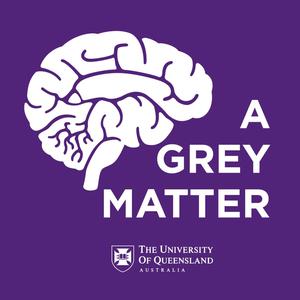
A Grey Matter
Queensland Brain Institute
A Grey Matter is for anyone who has ever wondered how we think, feel, reason and move. The Queensland Brain Institute's neuroscience podcast unlocks the wonders of the brain – the complex and mysterious core of who we are. QBI, at The University of Queensland, works to understand the development, organisation and function of the brain. www.qbi.uq.edu.au
- 19 minutes 55 secondsPodcast: The science of staying young
While countless supplements and products promise to reverse aging without scientific proof, the real secret to defying age may be found in the study of epigenetics. This field of study explores how our behaviours and environment can lead to changes that influence how our genes function.
Dr Anne Hahn from the Zuryn laboratory has recently discovered a mechanism in the DNA of genes that regulates how disease-causing mutations are inherited. The findings offer a promising therapeutic avenue to stop the onset of heritable and age-related diseases.
In this informative interview Dr Hahn explains:
Why the old belief that DNA mutations inevitably lead to disease might not be true
The important part mitochondria play in cell ageing
The lifestyle factors the can influence our genetic make-up
Why epigenetic modification is important in age-related diseases
Related Resources
1 October 2024, 4:00 am - 34 minutes 48 secondsHow memories shape us
Dr Matt Kenna is fascinated by the science of memory. As a researcher at UQ’s Queensland Brain Institute, Matt is tasked with challenging prominent theories centred around one of the biggest unknowns in the world of neuroscience. Memory is fundamental to our identity, shaping who we are. As a member of the Sah lab, Matt studies synaptic plasticity to explore how memories are formed, retrieved, and influence behavior.
In this engaging conversation, Matt discusses:
- How memory is defined
- Where memories are stored in the brain
- The importance of sleep in consolidating memory
- Why some memories are more important than others
- How we can delay cognitive decline and improve memory in old age
Related papers and resources
Interpreting memory: Research and Innovation Week 2024
UQ Research reveals exercise brain boost can last for years
UQ Research reveals new brain networks critical to memory formation
16 September 2024, 3:00 am - 43 minutes 2 secondsPodcast: Redefining mental health
Professor John McGrath, a distinguished clinician and researcher at UQ's Queensland Brain Institute, is at the forefront of global mental health research. Growing up in Brisbane, John initially pursued a career as a psychiatrist before transitioning to groundbreaking research aimed at unraveling the complexities of mental health disorders. Co-leading a major international study in collaboration with The University of Queensland and Harvard Medical School, John’s research revealed that one in two people will develop a mental health disorder by the age of 75. This pivotal study sheds light on crucial questions about mental health.
In this fascinating conversation, Professor McGrath discusses:
- The recent study findings showing how half of us will develop a mental health disorder by age 75.
- What epidemiology means, and why its useful in understanding mental health.
- The value of discovery science.
- The beauty of collaboration to reach a common goal.
- Whether mental health disorders could be prevented in the future.
2 September 2024, 5:00 am - 24 minutes 44 secondsPodcast: When comedy meets science
Mr Mehershad Wadia has written numerous scripts for short comedies screened at international film festivals like Mumbai and San Francisco, joined the writing team for the third season of The Office India and published a children’s book. Matching his passion for entertainment is Mehershad’s commitment to brain research. He is adamant there is no reason to choose between the two. At UQ’s Queensland Brain Institute, Mehershad works in the Hilliard lab, studying the nervous system of c.elegans.
In this insightful conversation, Mehershad explains:
- How the right experimental conditions led to a stand-up comedy career
- What studying worm brains can teach us about the human brain
- The parallels between comedy and science
- Why he became a writer for The Office during the pandemic
- How skills in the arts and science are helpful in any career.
19 August 2024, 6:00 am - 30 minutes 16 secondsTesting Stroke Recovery
Professor Gail Robinson has developed a new diagnostic tool to assess cognitive function in post-stroke patients called The Brief Executive Language Screening Test (BELS). This brief 20-minute test, can predict how much a stroke patient will recover to function independently in their first year.
In this informative podcast, Professor Robinson discusses:
- Stroke symptoms and causes
- Warning signs of a stroke
- The window that the BELS test can be taken to best inform recovery
- The typical clinical pathway of a stroke patient
- Lifestyle factors that can cause a stroke
2 August 2024, 5:00 am - 26 minutes 37 secondsTrain your brain
We know exercise is beneficial for our body and mind. Research has shown that neurogenesis – the production of neurons in the brain – continues throughout our lives and is key to improving cognition.
At the Queensland Brain Institute, Dr Daniel Blackmore, has been captivated by this process of neurogenesis. Alongside colleagues from The University of Queensland, he completed a comprehensive study, investigating the potential of exercise in mitigating the cognitive decline associated with diseases impacting learning and memory.
In this fascinating conversation, Dr Blackmore discusses:
What is happening in the brain at the onset of dementia?
How stem cells are important in producing new neurons?
What did you find out from the study?
What type of exercise leads to cognitive improvement?
Is there still more we can discover from this one study?
22 July 2024, 5:00 am - 28 minutes 16 secondsMeals matter for child brain development
Dr Bonnie Searle is passionate about getting children to eat. In her past life as a paediatric dietitian for children with food aversions, she experienced first-hand the power of changing how we feed children.
She is currently working on a special research project at the Queensland Brain Institute, called Mealtimes Matter, which suggests that there are some serious nutritional deficiencies in some childcare centres, particularly in disadvantaged areas, that is having a detrimental effect on child development.
In this insightful conversation, Dr Searle discusses:
- Why nutrition is important for developing brains
- The quality of nutrition at childcare centres across Queensland
- Healthy lunchbox tips
- Tips for fussy eaters
9 July 2024, 11:00 pm - 32 minutes 36 secondsTackling concussion
What do Wally Lewis AM and Nic Berry have in common? Quite a lot, it turns out. Wally started playing rugby union before switching codes to rugby league, becoming a legend of the game. Nic kicked off in rugby league before his professional career in rugby union, first as a player and now as an international match official. Both have also experienced significant head knocks in rugby and, with the benefit of hindsight, are passionate supporters of QBI’s concussion research.
In this relaxed conversation, they share:
- What they love about the game
- Their experiences of concussion in professional sport
- How the game has changed in the past decade
- What’s been done to protect the players
- Why more awareness and research are needed
Related resources
QBI concussion study (high school athletes)
24 June 2024, 11:00 pm - 21 minutes 10 secondsMemory enhancing mushrooms10 June 2024, 10:00 pm
- 25 minutes 26 secondsA neuroengineered future
Last year, neuroengineer Dr Clarissa Whitmire joined the Queensland Brain Institute as a senior research fellow and is the Institute’s newest group leader. Originally from the United States, Clarissa arrived at UQ following a postdoctoral appointment at the Max Dellbruck Center for Molecular Medicine in Berlin.
In a joint appointment with UQ’s School of Electrical Engineering and Computer Science, Clarissa seeks to combine her expertise in biomedical engineering with the next phase of neuroscience. Here at QBI, Dr Whitmire and her team are working to improve the human condition by developing tools and technologies to interface with our bodies.
Neuroscientists call this technology Brain Computer Interfaces – devices that establish a direct connection between the brain and a computer, allowing information to be transferred and translated from or even back to the brain.
In this episode of A Grey Matter, Clarissa discusses:
🧬 The rapidly emerging field of biomedical engineering (BME).
💻 Neuroengineering and where Brain Computer Interfaces sit within this.
🎬 Whether popular media influences neuroengineering technologies.
👩⚕️ Her background and what drew her to neuroscience.
🤔 What the future holds for neuroengineering.
26 May 2024, 9:00 pm - 26 minutes 42 secondsThe business of neuroscience
As a Research Fellow in Neuroeconomics, Dr Dragan Rangelov investigates human sensory perception, decision-making and memory. His work explores how the brain processes and stores information that leads us to make decisions in all aspects of life. He does this by using techniques designed to measure and record brain activity, such as electroencephalography (EEG) and functional magnetic resonance imaging and by identifying patterns of neural activity associated with external sensory stimuli.
In this conversation, Dragan delves into various intriguing topics, including:
- The brain systems responsible for decision-making
- How neuroeconomics explores economic decision making
- Game theory and how it provides a platform for neuroeconomic studies
- Why we choose to purchase one thing over another
- The idea behind establishing a neuroeconomics research profile at UQ
12 May 2024, 10:00 pm - More Episodes? Get the App
Your feedback is valuable to us. Should you encounter any bugs, glitches, lack of functionality or other problems, please email us on [email protected] or join Moon.FM Telegram Group where you can talk directly to the dev team who are happy to answer any queries.
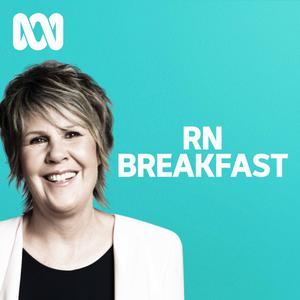 RN Breakfast - Separate stories podcast
RN Breakfast - Separate stories podcast
 The Signal
The Signal
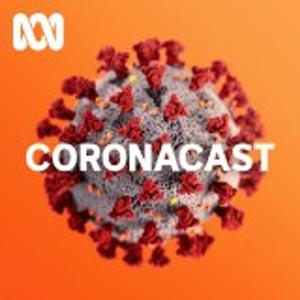 Coronacast
Coronacast
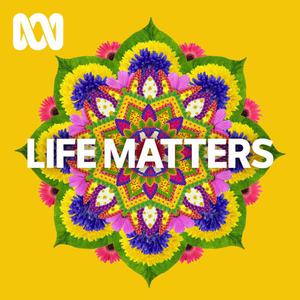 Life Matters - Full program podcast
Life Matters - Full program podcast
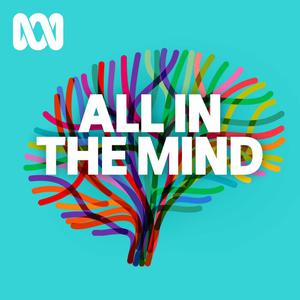 All In The Mind
All In The Mind
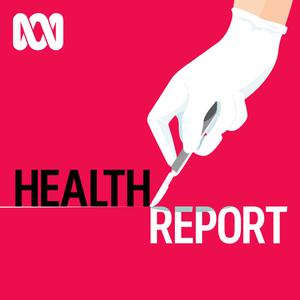 Health Report - Full program podcast
Health Report - Full program podcast